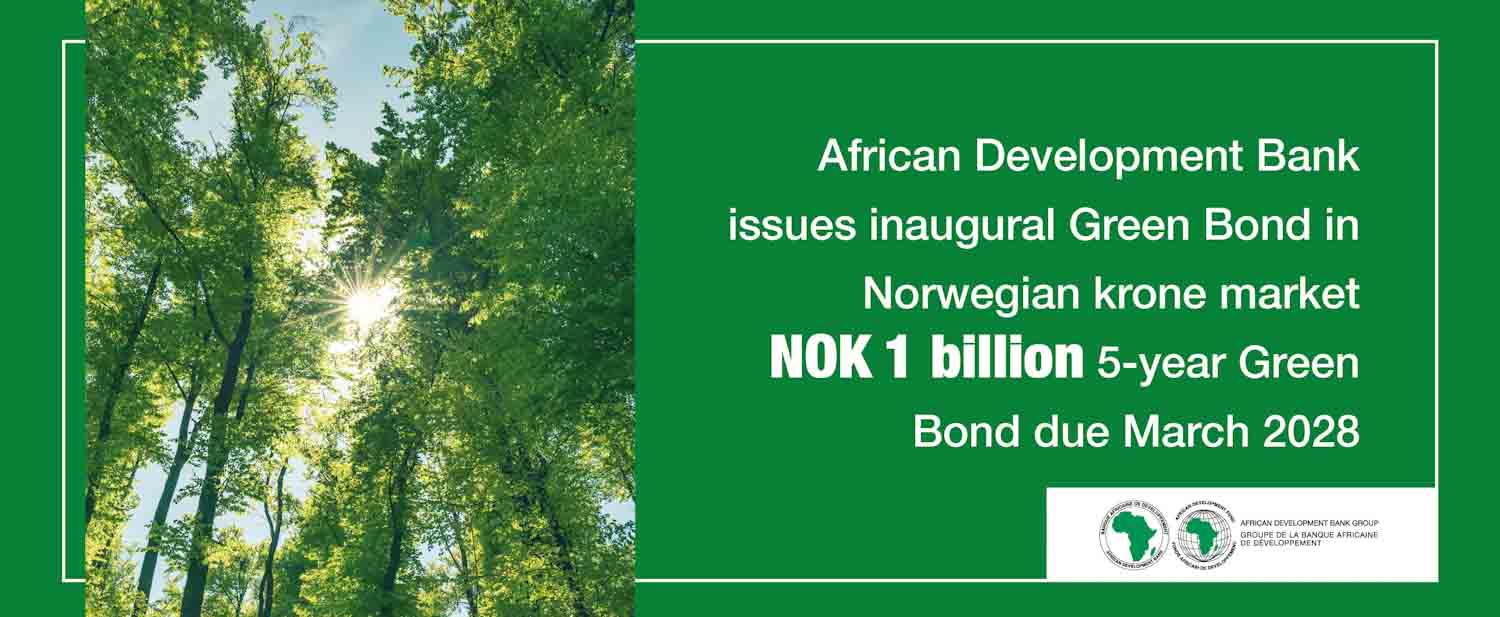African Development Bank launches USD 2 billion 4.375% Global Benchmark due March 14, 2028
The African Development Bank, rated Aaa/AAA/AAA/AAA (Moody’s/S&P/Fitch/Japan Credit Rating, all stable), has launched and priced a USD 2 billion 5-year Global Benchmark bond due March 14, 2028, its first of the year. The bond was issued on 7 March.

 The African Development Bank, rated Aaa/AAA/AAA/AAA (Moody’s/S&P/Fitch/Japan Credit Rating, all stable), has issued a 1 billion Norwegian krone (NOK) 5-year Green Bond due March 2028.
The African Development Bank, rated Aaa/AAA/AAA/AAA (Moody’s/S&P/Fitch/Japan Credit Rating, all stable), has issued a 1 billion Norwegian krone (NOK) 5-year Green Bond due March 2028. The African Development Bank and the Coalition for Dialogue on Africa (CoDA) have officially launched a three-year support project to improve regional coherent and coordinated response to illicit financial flows. The project will help African stakeholders actively engaged in stemming such flows to improve domestic revenue...
The African Development Bank and the Coalition for Dialogue on Africa (CoDA) have officially launched a three-year support project to improve regional coherent and coordinated response to illicit financial flows. The project will help African stakeholders actively engaged in stemming such flows to improve domestic revenue... The African Development Bank Group, on 9 March 2023, announces a 15-month debarment of Ogon-Asu Company Ltd. and its Chief Executive Officer, Mr. William Tuku Ogon, with effect from 24 February 2023. Ogon-Asu Company Ltd. is a construction company registered in the Federal Republic of Nigeria.
The African Development Bank Group, on 9 March 2023, announces a 15-month debarment of Ogon-Asu Company Ltd. and its Chief Executive Officer, Mr. William Tuku Ogon, with effect from 24 February 2023. Ogon-Asu Company Ltd. is a construction company registered in the Federal Republic of Nigeria.
 by William Ruto, Akinwumi Adesina, and Patrick Verkooijen
by William Ruto, Akinwumi Adesina, and Patrick Verkooijen